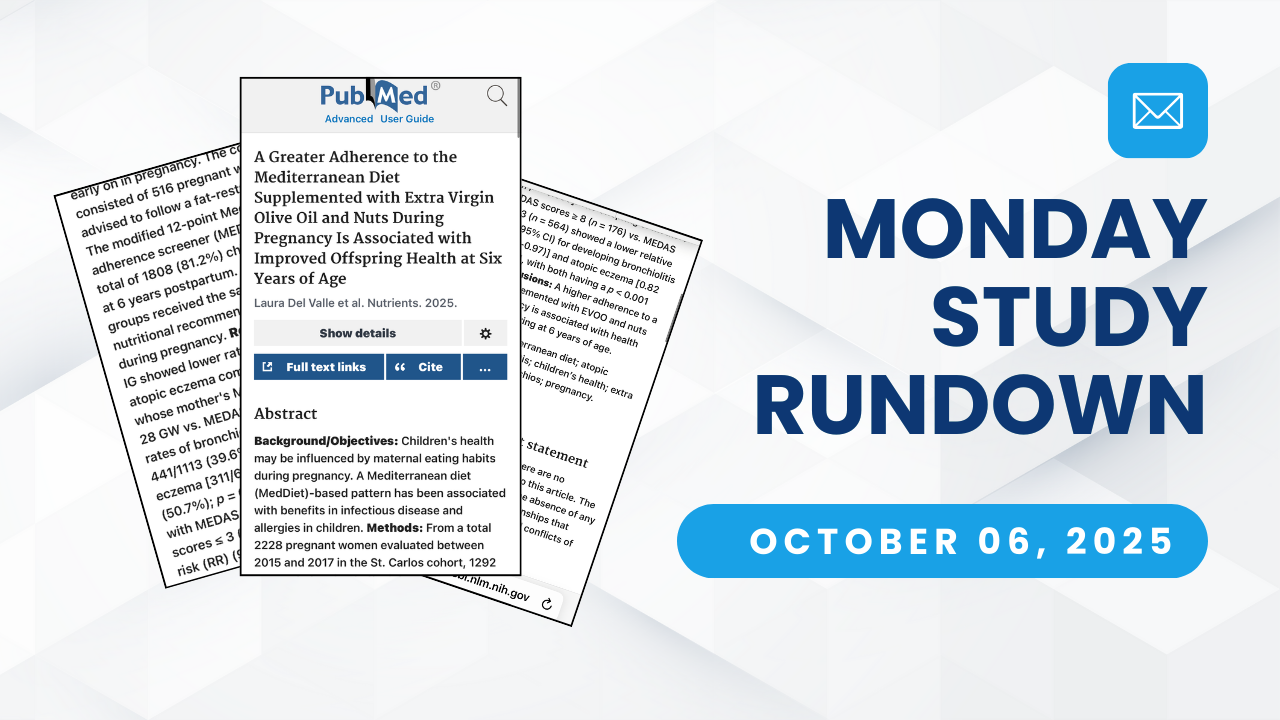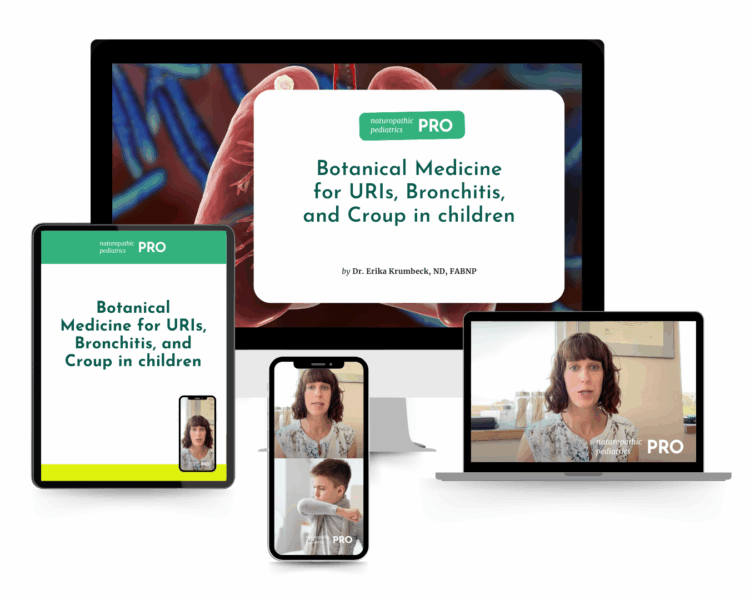
Erika Krumbeck, ND, FABNP
Read time: 4 minutes

Maternal nutrition has long been understood as central to fetal growth and pregnancy outcomes. Increasingly, however, it is recognized as a determinant of long-term pediatric health. The intrauterine environment—shaped by maternal diet, lifestyle, and metabolic status—acts as an early regulator of immune system development, metabolic programming, and microbial tolerance.
Traditionally, prenatal nutrition counseling has emphasized folate supplementation, caloric sufficiency, gestational weight gain, and glycemic control. While these remain critical, emerging evidence suggests the scope should be broader: maternal diet quality may directly influence a child’s risk for immune-mediated conditions years after birth. A recent publication in Nutrients (2025) provides compelling evidence for this expanded framework, demonstrating that adherence to a Mediterranean dietary pattern during pregnancy is associated with significantly reduced risk of pediatric allergic and respiratory disease.
The study analyzed 1,808 children enrolled in the St. Carlos GDM Prevention Cohort, a randomized trial designed to evaluate maternal nutrition during pregnancy.
➣ Study groups:
➣ Dietary adherence measurement: Maternal diet quality was tracked using the validated 12-point Mediterranean Diet Adherence Screener (MEDAS) at multiple points during gestation.
➣ Child follow-up: At age six, pediatric outcomes were assessed using both medical records and validated caregiver surveys, focusing on bronchiolitis, atopic eczema, allergy diagnoses, hospitalizations, medication use, and developmental milestones.
This is a unique study in that most previous studies on the MedDiet analyzed what the mother ate retrospectively, and most were observational or cohort studies. These previous studies have shown contradictory findings. This study, on the other hand, collected data on maternal diet during pregnancy, as opposed to retroactively. It also evaluated the influence of confounding factors including breastfeeding duration and exclusivity, food introduction, vaccination adherence and daycare attendance.
Maternal dietary adherence correlated strongly with child health outcomes at age six:
→ MEDAS ≥6 was associated with:
→ MEDAS ≥8 showed even stronger protective effects:
Children in the intervention group (Med Diet enriched with olive oil and pistachios) also demonstrated trends toward reduced antibiotic and corticosteroid use, fewer hospitalizations, and shorter inpatient stays—suggesting broader systemic benefits.
This study provides several important insights:
The findings highlight a need to reconceptualize dietary counseling as a form of preventive immunology. Just as antibiotic stewardship has become standard practice, nutritional stewardship may need to be considered an essential element of pediatric and maternal care.
The Mediterranean diet—particularly when enriched with EVOO and nuts—offers a practical, evidence-based template for such stewardship. Unlike single-nutrient interventions, dietary patterns capture the synergistic effects of whole foods, providing a comprehensive, real-world model for both patients and providers.
The author’s note in the discussion is especially compelling: “Taking a MEDAS score of 3 or less as the reference category, our study finds that any increase in the MEDAS score is associated with a reduction in the rates of both bronchiolitis and atopic dermatitis. Thus, those with high adherence, reaching at least a score of 8 points, presented a 25% and 18% reduction in the rates of bronchiolitis and atopic dermatitis, respectively.”
This prospective study demonstrates that maternal adherence to a Mediterranean diet during pregnancy is associated with lower rates of bronchiolitis and atopic eczema in children at six years of age. The findings support the view that maternal diet functions not only as a lifestyle factor but also as an early immunologic input with durable, clinically significant outcomes.
For pediatric and integrative clinicians, the implications are direct: prenatal nutrition counseling should extend beyond maternal outcomes to encompass long-term pediatric immune health. A MEDAS score ≥8 provides a clear, evidence-based target for guiding patients.
Ultimately, the study reinforces the importance of upstream intervention—shaping immune resilience not after symptoms emerge, but before birth, when the foundations of lifelong health are being established.
Want pediatric-focused insights that cut through the noise? Subscribe to my Monday Study Rundown, where I unpack new research and what it means for real-world care.
For more Monday Study Rundowns, click here.



